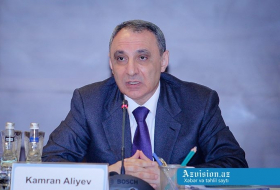CAPSAP allowed saving funds due to the fact that previously students were sent abroad to study accounting, but now they can do it in Azerbaijan.
“Students also benefited from training in their native language and avoided uneven training standards,” says the report. “The training activities used the same books as used abroad, translated to the national language, and the trainers have been accredited, which means that the training activities achieve the required basic standards.”
One of the project’s components is the installation of the Financial and Accounting Reporting Application for Budgetary Institutions (FARABI). With respect to FARABI, the cost of the software, hardware and installation for 99 institutions was $11 million, according to the report.
The Azerbaijani government plans to additionally install this application in 900 institutions.
On the downside, says the report, there is a relevant shortcoming, because the Chamber of Accounts (CoA) did not audit any budget expenditure using the new methodology, since the financial and performance audits depend on the CoA revised draft law, not passed by the Azerbaijani parliament yet.
Total cost of the Corporate and Public Sector Accountability Project is $24 million. A loan agreement on the project was signed in September 2008.
CAPSAP was financed by a loan of the WB in the amount of $11 million, grants of the Japan Policy and Human Resources Development Fund ($3 million), Switzerland’s State Secretariat for Economic Affairs (SECO, $2 million), as well as by the Azerbaijani government ($8 million).
The project’s implementation was completed in June 2015.
Azerbaijan joined the WB Group in 1992.
More about:
















































